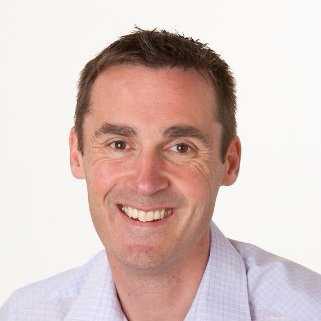

What is your role and who do you work for?
My official role is Head of Services at the GSM Association (the trade body for the mobile telecommunications industry). However, throughout my career, my main role has been as a technology evangelist working on the application of nascent technology to introduce new services.
For example, I’m currently working in the sphere of identity and exploring how mobile networks with technology such as biometrics and blockchain can make it easier for people to authenticate themselves in a secure way whilst transacting online.
How long have you been in IT?
I graduated and entered industry 22 years ago but dabbled for many years before that!
What is your most interesting project to date?
Identity is a fascinating and ever-evolving sphere with the need to easily and securely access online services becoming more important given the amount of time we now spend online.
I started working in this space four years ago and have seen it blossom from relative irrelevance (from a customer perception perspective) to something which has become much more emotive and personal in terms of anonymity/privacy.
This has been heightened by the ease with which people want to be able to authenticate themselves across the plethora of connected devices they now own.
What is your biggest challenge at the moment?
Global fragmentation! A common way to identify people across the internet and the huge variety of networks used to access it is sorely needed, but currently absent.
In its place, a number of proprietary solutions have become commonplace that potentially tie the user to a single vendor. Unravelling this complexity and providing more open and standard solutions for the benefit of all is the key challenge.
What technology were you working with ten years ago?
Ten years ago was a key turning point in the evolution of the smartphone as it transformed from being a Frankenstein-like utility device that tried to do everything but not very well, to a software-driven ‘slate’ capable of supporting multimedia, personal navigation, internet browsing, video telephony and much more in a simple intuitive package.
Back in those days I was working on everything from audio/video codecs to mobile phone arch as the industry collectively evolved at an unprecedented rate to produce the kinds of mobile phones that today we now take for granted – it was great fun!
What is your favourite technology of all time?
The ability to faithfully record and reproduce sound has always been a fascination for me and, whilst these days it’s commonplace, the ability to listen to music whenever and wherever I want is purely magical.
How will the Internet of Things affect your organisation?
The GSMA has been very active for some time working on the future of connected things spanning automotive, education, health, smart cities and many other areas where IoT will play a key role in shaping how we lead our lives. One of the key challenges we’re currently facing is how to uniquely identify and connect billions of IoT devices.
What smartphone do you use?
An Apple iPhone and I have been since their introduction – does this make me a fanboy? I don’t think so, but I’d have to admit to there being a fair few Apple devices in our family household…
What three apps could you not live without?
Over and above the basics (calls, browsing, music, photos etc.) it’d have to be Due, Naim and Sleep Cycle. Due is a simple reminder app that works really well and is indispensable for noting down things I need to do; Naim is a UPnP app for controlling what music I want to listen to at home; and Sleep Cycle doubles up as both my alarm clock and a way of monitoring how well I’m sleeping.
What new technology are you most excited for a) your business and b) yourself?
I’d probably go with artificial intelligence – it’s over-hyped right now (everything has become AI just as everything previously had to be in the Cloud). However, twinned with big data analytics, it will provide insights and a means for human-machine interaction that will have a big impact on the way we access services (and the usefulness of those services) going forward.
If you weren’t doing the job you do now, what would you be doing?
I’d love to have been a musician (but lacked the talent), so probably something in the audio industry – perhaps travelling the world fine-tuning the acoustics of theatres and concert halls.
SoftBank has agreed a funding deal that will see OpenAI being provided with up to…
Tesla sales have plummeted to lowest level in three years, as deliveries of new EVs…
New addition. Next generation foundation model, as Amazon Nova model launches to perform actions within…
Head of artificial intelligence research at Meta Platforms has announced she is leaving the social…
No decision yet, after media reports CK Hutchison was to spin off its global telecom…
Ahead of 5 April deadline, Trump is to hold White House meeting over possible investors…